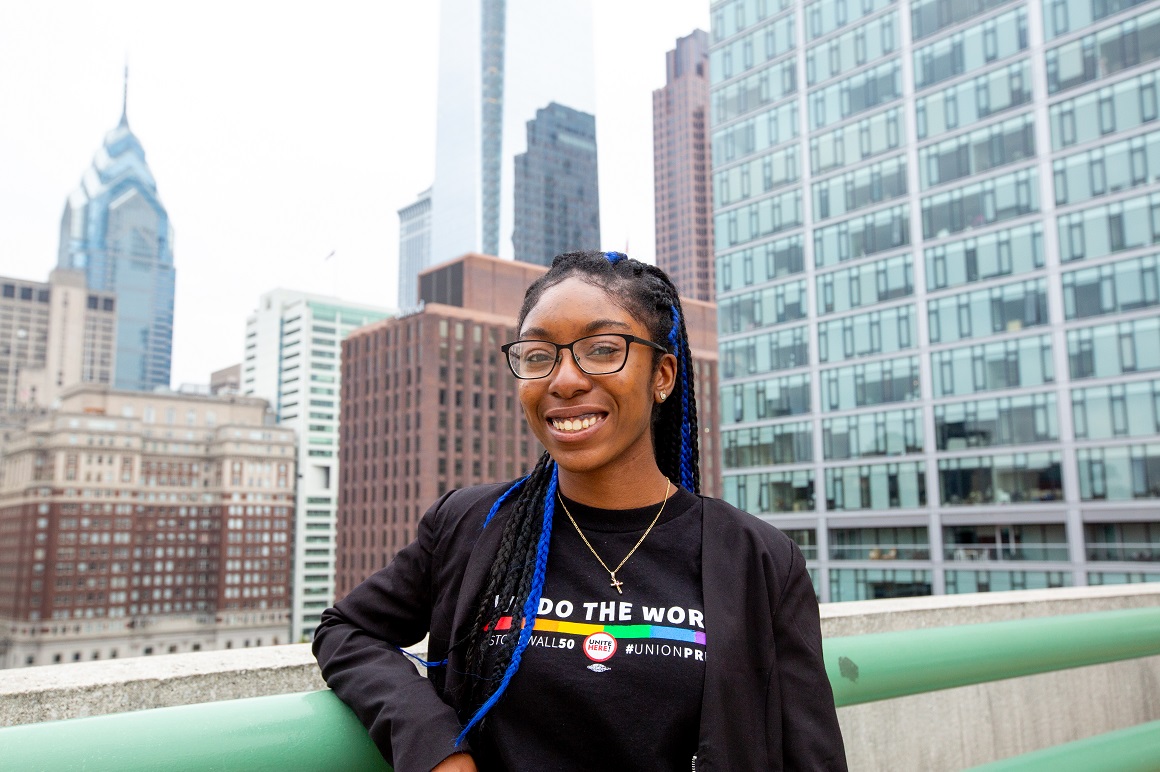Exposing Adverse Health Effects Linked to Hotel Work

August 22, 2019
A DSPH MPH student uses her occupational health training to improve health and working conditions for hotel workers.
Through the Occupational Health Internship Program (OHIP), Chelsi Defoe, an MPH candidate in the department of Environmental and Occupational Health at the Dornsife School of Public Health (DSPH), has spent her summer interning with UNITE HERE’s Philly Chapter Local 274 as her MPH depth experience.
Defoe initially became interested in occupational health after spending a year assistant teaching at a grade school once she completed her bachelor’s degree. “I saw first-hand the obstacles teachers face in their workplace – they lacked resources for their classrooms, a fair salary and benefits,” she says. Through her coursework at DSPH, she studied an array of adverse health effects related to occupational exposures.
When it came time to select a practice experience at DSPH, she wanted to make a meaningful contribution in Philadelphia and felt interning with UNITE HERE was the place to start because of their reach. This local represents 4,000 private sector hotel and food service workers throughout the Philadelphia region.
The need for better working conditions is essential for this population. “Philadelphia continues to grow and so does the need for service industry workers in the area,” says Defoe. According to the Pew Charitable Trusts' 2015 report on Philadelphia, the Leisure and Hospitality sector is the fastest growing industry in the city; it has grown 23 percent in the last ten years.
In her role, Defoe works directly with housekeepers. She attends local meetings, provides trainings about workplace safety, and identifies areas that need intervention. “It is rewarding to connect with union members in high-risk jobs and represent a vulnerable population,” she says.
A major workplace hurdle Local 274 members face is chronic pain. “Too often, workers in the service industry have to choose between their paycheck or worsening an existing injury,” Defoe says. “Many of the workers are women of color and thus, are overlooked and mistreated. Unfortunately, their injuries are underreported or simply seen as ‘part of the job’,” she says.
To combat this problem, Defoe created and distributed a survey on workplace health and safety to really understand the impact that work-related pain is having on housekeepers’ lives in three unionized hotels in Philadelphia. “From grocery shopping to cleaning their own homes, countless workers reported being unable to do basic, everyday activities,” she says.
The research, which was conducted with The National Institute for Occupational Safety and Health (NIOSH), will be used to inform hotels, provide evidence-based interventions and ultimately, reduce the pain housekeepers experience. “It is my hope that individuals in these occupations become more valued and humanized — they are people too,” says Defoe.
Defoe will present her research at APHA 2019 in Philadelphia. She was awarded a scholarship to do so through OHIP. “I want to make OHIP, my mentor, and the Drexel community proud,” she says.
As her time with UNITE HERE comes to an end, Defoe reflects on the experience. “Dornsife gave me the exposure I needed in this field and the guidance,” she says. Her mentor Tran Huynh, PhD, MPH, CIH, assistant professor of Environmental and Occupational Health at DSPH, was “instrumental” to her success.